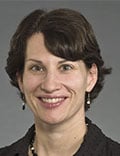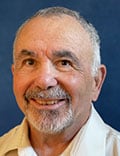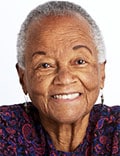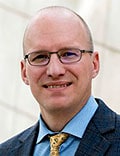A free tool aims to increase oncologists’ use of formal geriatric assessments (GAs) in older patients with cancer.
Such assessments seek to measure factors beyond age that can affect a patient’s risk for morbidity or mortality. They can primarily be self-administered but do require brief involvement from care staff. Plus, their value is backed by solid evidence, and they are widely recommended in clinical guidelines. Despite these reasons for using them, many oncologists don’t do GAs, often citing time as a factor.
In 2023, the American Society of Clinical Oncology (ASCO) published a chart called the Practical Geriatric Assessment (PGA), a tool — mainly consisting of basic health and wellness questions — meant to streamline GAs for patients with cancer. On the basis of recent data from randomized trials, the PGA is designed to be more clinically practical than similar instruments such as the Comprehensive Geriatric Assessment, the Cancer and Aging Research Group (CARG) toxicity tool, and the Chemotherapy Risk Assessment Scale for High-Age Patients.
Two years later, more and more providers are beginning to incorporate the PGA into their practices, according to Heidi Klepin, MD, MS, professor in the Section on Hematology and Oncology at Wake Forest University School of Medicine in Winston-Salem, North Carolina.

While Klepin helped develop the PGA as a member of CARG, she has always done more extensive GAs in her own practice, she told Medscape Medical News.
The PGA isn’t meant to replace any more time- or resource-intensive GA tools that oncologists may be using. Instead, it is meant to encourage the use of GAs in the first place.
While the time it takes to perform a GA in general may range from 15 minutes to 30 minutes, according to research, the PGA can be completed in less than 10 minutes.
What Is the PGA?
Older people with cancer have chronological age in common but may differ in such domains as comorbidity, cognitive function, psychological health, and social support.
GA is an approach that clinicians can use to gauge patients’ health status across various domains and then help them decide on the appropriate treatment.
“Everybody had their own version of geriatric assessment because it’s not one standardized tool,” Klepin said. “It’s a strategy.”
The PGA is a GA tool designed to be simple for oncologists to administer. The five-page document is available for download here.
The vast majority of the PGA consists of questions for patients — including “How many times have you fallen in the last month?” and “Can you prepare your meals?” — that can be answered without care staff. The exceptions are tests for cognition and gait speed, which can be administered by a nurse or advanced practice provider.
When ASCO published the PGA in 2023, it also provided an action chart, available for download here. The chart explains how to score the test results and recommends steps that oncologists could consider taking to care for their patients in the event of a given result. “It’s all interpreted for them in a very pragmatic way,” Klepin said.
Additionally, ASCO posted a companion article, available here, that anticipates oncologists’ questions about the PGA and seeks to answer them.
For instance, a pretreatment PGA can benefit a community oncologist by informing them that, say, a 72-year-old patient with recently diagnosed metastatic colorectal cancer has a history of falls, significant weight loss, and diabetes and requires assistance with taking daily medications, according to ASCO. This information suggests the patient is at a significant risk for chemotherapy toxicity, so the oncologist may decide to begin with a de-intensified treatment approach as well as refer the patient for physical therapy, occupational therapy, and a nutritionist, the article says.
ASCO also shared a pair of PGA instructional videos. In one of them, a doctor explains what to do with the results based on the example of a hypothetical 70-year-old woman with a new diagnosis of colon cancer. “While her performance status [PS] is good, the geriatric assessment told me even more about her strengths and vulnerabilities,” said Amy MacKenzie, MD, FACP, a professor at Thomas Jefferson University Hospitals, Philadelphia, and CARG member, in the video.
Why the PGA?
When ASCO published its first guideline for geriatric oncology in 2018, it recommended the use of GA in patients aged 65 years or older receiving chemotherapy.
However, a 2020 study found that of 1277 ASCO members who chose to participate in a survey, nearly half indicated they were not aware of the geriatric oncology guideline. Only 21% of survey participants said they performed a multidimensional GA using validated tools “always” or “most of the time.”
In the meantime, a 2021 study based on a random clinical trial found that GA-driven interventions could reduce significant chemotherapy-related toxicity for older patients — with no difference in their ability to survive cancer. Interventions included exercise prescriptions for patients with functional limitations, management with primary care for comorbidities, and social work counseling for psychological issues.
In the GAIN arm, a geriatrics-trained multidisciplinary team composed of an oncologist, nurse practitioner, social worker, physical/occupational therapist, nutritionist, and pharmacist reviewed GA results and implemented interventions based on prespecified thresholds built into the GA’s domains.
The same year, another study based on a large, random clinical trial found that providing a GA report to oncologists reduced serious treatment-related toxicity by 20% — again with no difference in overall survival. According to the study, the most common interventions chosen by oncologists included “frequent toxicity checks, adjusting cancer treatment schedule or dosing, reviewing medications for duplications or interactions, providing education materials on aging-related conditions, and referrals to relevant disciplines [ie, social workers or nutritionists].”
In 2023, prompted by the two studies, ASCO issued an updated guideline recommending the PGA as “one option” for the use of GA. The guideline also expanded ASCO’s recommendations beyond patients receiving chemotherapy to also include older patients receiving targeted therapy and immunotherapy.
As a composite tool, the PGA hasn’t been directly validated by research itself. However, it is composed of measures validated in the prior randomized trials, Klepin said.
“The PGA was not the exact compilation of measures that were used in the multiple randomized control trials that showed benefit for geriatric assessment,” she explained. “But the measures within the PGA have all been used within one of those trials.”
How Are Providers Using the PGA?
Among oncologists and hematologists implementing the PGA, citing its ease of use, is Christopher Jensen, MD, MS, of the University of North Carolina (UNC) at Chapel Hill Lineberger Comprehensive Cancer Center.

“They call it the practical geriatric assessment for a reason,” Jensen said.
Staff members give patients the PGA and have them answer the questions while they’re waiting, and then Jensen personally administers the cognitive portion and gait speed test, he said.
Research has shown that more typical PS assessments, such as the Eastern Cooperative Oncology Group PS or the Karnofsky PS, miss issues that can directly affect patients’ health and treatment tolerance in an oncology care context, Jensen explained.
Such PS tools “were validated in younger patients and do not adequately address the heterogeneity in the aging process,” according to a 2016 study published in the Journal of Oncology.
To be sure, the standard “eyeball test” may also fall short. “I’m sure most people have had the experience of a patient that eyeballs well,” Jensen said.
Jensen recalled one patient in his late 70s who had chronic lymphocytic leukemia (CLL).
This patient drove himself to appointments and was well-dressed and articulate, with no signs of any particular concerns. But when the patient completed the PGA, Jensen said, it revealed that he had fallen twice in the past 6 months and was struggling with some of his instrumental activities of daily living, such as managing finances.
“That really changed our initial approach,” Jensen remembered.
Instead of rushing into starting the patient on treatment, Jensen focused on getting him connected with physical therapy and a social worker for addressing problem areas revealed by the PGA and then started him on CLL treatment about 2 months later.
While the man ended up handling both the side effects of treatment and the complex logistics of starting it “quite well,” he might not have been able to do without “some additional TLC,” Jensen said.
Ultimately, GA is meant to improve outcomes for older adults undergoing cancer treatment, Jensen explained. “It’s really about supporting people through care,” he said.
What Do Patients Say?
Chuck O’Shea, a 78-year-old survivor of non-Hodgkin lymphoma and a patient advocate, said he wants the PGA done so oncologists know where he’s at across his medical, social, and other domains of life and then can provide him with the proper treatment.

O’Shea recalled a friend named Camille, who had given up all hope after cancer treatment with a doctor in Oxnard, California. O’Shea helped her find a doctor at City of Hope, Duarte, California.
“The PGA was one of the first things she did at City of Hope, and a treatment plan was developed,” O’Shea said. “If she had not done a PGA, I’d expect she would have received what is considered standard-of-care treatment, and from what I know, it would have been way too much for her to handle.”
O’Shea said that while he doesn’t know the results of Camille’s PGA, he guesses that quality of life was paramount.
“The bottom line is she still died,” he recalled, “but it did give her and her husband time to take a trip to Africa, which they had wanted to do for a long time, and I know they were grateful to have that time together. They brought along a number of family members, so for them it was a trip of a lifetime.”
Beverly Canin, a breast cancer survivor and patient advocate, said she wants the PGA because having at least this stripped-down form of GA better measures the way older patients with cancer may respond to treatment.

“We want to see it as a standard tool for older patients with cancer,” the 91-year-old said.
O’Shea and Canin are co-chairs for SCOREboard, a patient oversight board for CARG.
What’s Next for the PGA?
William Dale, MD, PhD, a co-leader of CARG with Klepin, said that the group is now getting the word out about the PGA to patients.
A planned Facebook campaign would provide patients with a downloadable version of the PGA and encourage them to self-advocate for the evaluation, said Dale, a geriatrician who is chair of Supportive Care Medicine at City of Hope.
CARG is also pushing for embedding a version of the PGA in the Epic electronic health record system, Dale said.
He noted that the Centers for Medicare & Medicaid Services (CMS) recently announced quality measures for what it calls “age-friendly care.” The PGA fulfills almost all of the criteria, Dale said, and he hopes CMS will either offer more reimbursement for hospitals that provide age-friendly care or else penalize hospitals that fail to do so.

The PGA can also give oncologists more confidence that an older patient is fit for clinical trials, hopefully increasing the number of older patients with cancer in such trials, said Klepin.
Including GA measures in the clinical trials themselves, meanwhile, would provide yet more information about patients, she noted.
“We don’t know if patients with diabetes do worse with a given [cancer] therapy because nobody asks,” Klepin said. “It doesn’t make sense.”
Jensen declared that he has received research funding (paid to UNC) from the ASCO for projects related to evaluating GA-guided supportive care programs, but not from any company or entity that sells, markets, or stands to profit from GAs. Klepin and Dale declared having no financial conflicts of interest around the PGA.


 Admin_Adham
Admin_Adham


